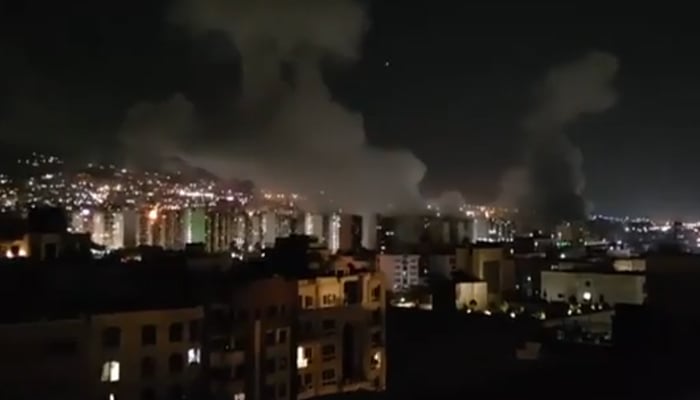
Israel has launched a full-scale military assault on Iran, targeting key nuclear and military sites in a series of pre-dawn airstrikes on Friday, marking a dramatic escalation in tensions between the two regional powers.
Iranian state media confirmed the death of Major General Hossein Salami, commander of the Islamic Revolutionary Guard Corps (IRGC), along with senior nuclear scientists and high-ranking military officials.
Loud explosions were heard in northeastern Tehran, with plumes of smoke seen rising from several locations. Iranian media confirmed that parts of northern, central, and western Tehran were struck. Reports also confirmed missile strikes in Isfahan province.
According to Iranian state television, the headquarters of the IRGC in Tehran was among the primary targets. In addition to Salami, prominent nuclear scientists Fareed Abbasi and Mohammad Mahdi were reported killed. Major General Gholam Ali Rashid, commander of the Khatam al-Anbiya Headquarters, was also confirmed dead. Ali Shamkhani, a senior advisor to Iran’s Supreme Leader and a senior security commander, was reported critically injured.
The Israeli military claimed responsibility for the assault, with the Defense Minister declaring that Israel had launched a preemptive strike on Iran, targeting nuclear enrichment systems, ballistic missile production facilities, and military command centers. Israeli officials said dozens of fighter jets were involved in the operation, hitting over 20 locations across the country.
Also Read: KP Government Plans Underpasses on Peshawar Ring Road to Ease Traffic Congestion
Israeli Prime Minister Benjamin Netanyahu called it a “decisive moment in Israel’s history,” stating: “Our fight is not with the Iranian people, but with the regime that threatens peace through its nuclear ambitions.” He added that Israel’s goal is to prevent Iran from acquiring nuclear weapons and to degrade its military infrastructure.
Iran responded by placing its air defense systems on full alert and suspended all flights from Tehran’s Imam Khomeini Airport. The country also announced the closure of its airspace until further notice. High-level security meetings are underway in Tehran, while fears of a retaliatory ballistic missile strike have prompted Israel to declare a state of high alert.
Meanwhile, the United States distanced itself from the attack. Secretary of State Marco Rubio stated that the U.S. had no role in the Israeli operation and emphasized that Washington’s priority remains the safety of its troops in the region. He added that Israel had informed the U.S. the action was taken in self-defense.
The strikes come just two days ahead of expected indirect nuclear talks between Iran and the U.S. Iranian officials had earlier warned of a severe response if Israel initiated any aggression.
Former U.S. President Donald Trump, commenting on the development, reiterated that failure to reach a nuclear agreement with Iran could lead to military conflict. “We are committed to finding a diplomatic solution,” he said, “but Iran must first abandon its nuclear weapons ambitions.”
Tensions now remain at a boiling point, with the region bracing for further escalation.